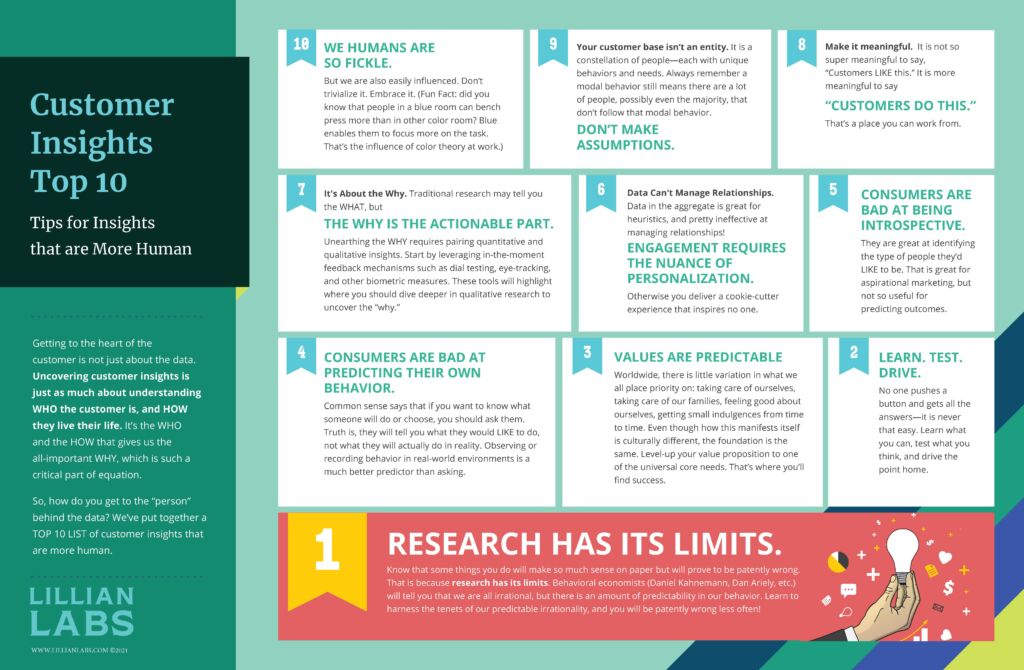Tips for Product Managers: Making your Insights More Human
Product Managers carry a heavy load. In the same day you are the market expert, statistician, defender of the roadmap, evangelist, master scheduler, sherpa.
Your biggest role is as Subject Matter Expert (#SME) on all things “customer”. Knowing your customer is the cornerstone of Pragmatic Marketing.
That is a tall order. For simplicity, it is easy to view your ‘customers’ as a unit, that behaves in specific ways.
But in fact, your customers are a constellation of people. Each is unique, but with some commonalities that can be exploited (for good, naturally.)
What can often fall by the wayside is truly SEEING your customers as people. Here’s the trick: how do you extract insights from them that are meaningful, human, and empathetic. After all, your product is solving their problems, right?
We’ve put together a quick-hit list of ways to approach your customer research.
Product MANAGEMENT: best practices for humanizing your insights
But we are also easily influenced. Don’t trivialize it. Embrace it. (Fun Fact: did you know that people in a blue room can bench press more than in a different color room? Blue enables them to focus more on the task. That’s the influence of color theory at work.)
Your customer base isn’t an entity. It is a constellation of people—each with unique behaviors and needs. Always remember a modal behavior still means there are a lot of people, possibly even the majority, that don’t follow that modal behavior.
Make it meaningful. It is not so super meaningful to say, “Customers LIKE this.” It is more meaningful to say
“CUSTOMERS DO THIS.”
That’s a place you can work from.
Traditional research may tell you the WHAT, but THE “WHY” IS THE ACTIONABLE PART.
Unearthing the WHY requires pairing quantitative and qualitative insights. Start by leveraging in-the-moment feedback mechanisms such as dial testing, eye-tracking, and other biometric measures. These tools will highlight where you should dive
Data Can’t Manage Relationships. Data in the aggregate is great for heuristics, and pretty ineffective at managing relationships!
ENGAGEMENT REQUIRES THE NUANCE OF PERSONALIZATION.
Otherwise you deliver a cookie-cutter experience that inspires no one.
CONSUMERS ARE BAD AT BEING INTROSPECTIVE.
They are great at identifying the type of people they’d LIKE to be. That is great for aspirational marketing, but not so useful for predicting outcomes.
A corollary to the above… CONSUMERS ARE BAD AT PREDICTING THEIR OWN BEHAVIOR.
Common sense says that if you want to know what someone will do or choose, you should ask them. Truth is, they will tell you what they would LIKE to do, not what they will actually do in reality. Observing or recording behavior in real-world environments is a much better predictor than asking.
We all want the same things. It’s true. Worldwide, there is little variation in what we all place priority on: taking care of ourselves, taking care of our families, feeling good about ourselves, getting small indulgences from time to time.
Even though how this manifests itself is culturally different, the foundation is the same.
Level-up your value proposition to one of the universal core needs. That’s where you’ll find success.
No one pushes a button and gets all the answers—it is never that easy.
BE patient with yourself. You will find those ‘ah-ha’s overtime.
Learn what you can, test what you think, and drive the point home. Rinse. Repeat.
Might seem crazy for us to say this, since we’re a research firm, but it is true.
Know that some things you do will make so much sense on paper but will prove to be patently wrong. That is because research has its limits.
Behavioral economists (Daniel Kahnemann, Dan Ariely, etc.) will tell you that we are all irrational, but there is an amount of predictability in our behavior.
When you learn to harness our predictable irrationality, you will be patently wrong less often!



